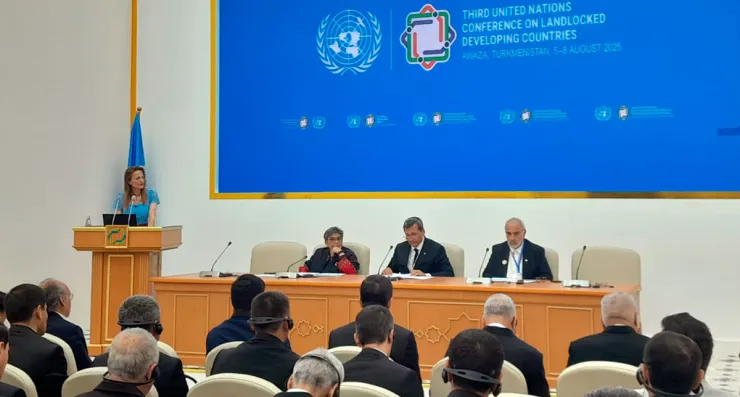Unless right policies are undertaken now, it will be hard for developing world to catch up with the developed world and the gap will keep widening
The United Nations estimates that by 2050 the world’s population will reach nearly 10 billion, a surge of over two and half billion in the next thirty years or so. Each year planet earth welcomes 83 million more inhabitants and two large emerging economies, China and India, are major contributors of this. International Labor Organization (ILO) estimates that with growing population, every year nearly two million unemployed workforce is added into the global labor force which primarily comprises of youth in developing countries.
The world now needs concrete steps to engage this growing workforce in some productive activities. Currently, this active population has responsibility of feeding nearly another half of the world’s population as pointed out by UNFPA’s current dependency ratio of 52.5 percent.
So, where are the jobs going to come from for constantly growing population? This is a big question for policymakers around the world. This is even critical especially in the context of dramatic changes the global workforce is facing as a result of rapid advancement in technology which many fear will take away many jobs from human hands.
Developed countries are on the positive front in this case even though youth unemployment is slowly growing there in the recent years. The developed countries have foreseen this challenge and have initiated to tailor their national employment policies accordingly to meet the future challenges.
The future world is going to be the world of knowledge workforce which the developed countries are fairly aware of. Thomas Friedman, a journalist-turned-author, rightly points out in his bestseller, The World is Flat, that the world has now entered into the third phase of globalisation in which an individual in any part of the world can join global workforce any time and developed countries are cautioned to be aware of this situation so that they keep hold of their leadership in innovation.
New Novel ‘Wake Up Ali…Wake Up Now’ by Sumit Sharma Sameer laun...

Yuval Harari, historian and author of two recent world famous books Sapiens: A Brief History of Humankind and Homo Deus: A Brief History of Tomorrow, goes even further and sees the future world as the one where entire human race would potentially turn out to be a completely different species shaped by artificial intelligence (AI) and genetic engineering which will create a work environment that we never imagined. The recent focus of Microsoft and Google on Quantum computer and AI are manifestations of this impending situation.
Changing landscape
On the flip side, the developing world appears to be fully ignorant about all these happenings in the landscape of global work environment. They still believe in manufacturing sector to create jobs, some even don’t realize it and are heavily dependent on subsistence agriculture. The world is heading to beyond service sector, such as quaternary and quinary sectors where knowledge and innovation are the major ingredients, whereas developing world is still messed up with primary or secondary sector.
Certainly, it is hard from developing world to jump eventually over to a dominant service sector which is now creating most of the jobs in the developed world. There is no way for them other than to step in first to strengthen the manufacturing sector and then gradually move to the sectors beyond that.
Two approaches are prescribed to strengthen manufacturing sector and mitigate growing unemployment problem: Strategic industrialisation, and right education and employment policies. In the context of increased globalization and rising competition, mere industrialisation is not sufficient. Pursuing ‘strategic’ industrialisation is the current need for the developing world. Some of the approaches that should be taken under these strategies, which developed countries had taken in their early stages of industrialisation or even today, are World Product Mandating, Partnership and Niche Marketing. Under World Product Mandating, branch plants of large companies are allowed to operate in their territories. Developing countries should rather not engage in head-on competition with them in global markets for they cannot compete in the market already dominated by large companies which have significantly lower cost of production due to high economies of scale.
Partnership strategy allows domestic companies to develop partnership with companies in the larger economies which is used as a tool for easy access to their market. This is most effective indirect approach to penetrate the larger markets. The strategy of niche marketing, on the other hand, is another way of accessing markets in developed world according to which developing countries will produce high quality goods to enter into the market of high-end customers rather than competing through mass production for low-end customers.
Historically such strategies have been very successful to be able to compete in global markets particularly for smaller economies and create many jobs domestically. Switzerland, Mexico and Canada are examples of implementing this strategy successfully in their early stages of industrialization.
Another strategy is to implement right education and employment policies to prepare right workforce for the future needed for their own country and globally. This is important for developing countries because the graduation rate among youths in these countries is rising, but they severely lack proper employment policies to absorb the workforce within the country. According to the ILO, only 27 developing countries have national employment policies and these too came into existence in the aftermath of the global financial crisis of 2008.
In developing countries, educational institutions are producing graduates not to fill up positions in the domestic job market but instead to send them in universities in foreign countries. Many graduates in developing countries leave for developed countries to harness their potential and it is for a good reason, subsidized mostly by domestic taxpayers, as they don’t have opportunities in their own countries. There is a famous saying in banking sector that the second buyers always benefit after the asset is taken up by banks. In the same way, developed countries are beneficiaries of this situation as being buyers of talent pool of developing countries which they buy at real cheap price.
Reversing the trend
To reverse this trend, it is important to put more emphasis on trade skills in their educational curricula. There is something to learn from developed countries in this regard. The ILO has classified all jobs in the world into 436 standard major occupations, and the education institutions in developed countries take these occupation classifications as a guide to equip their graduates with necessary skills in the job market. There is sort of virtual partnership between business communities and the educational institutions so that the graduates will be eventually able to find the jobs they need at home after they graduate. In the case of developing world, this is not happening.
There is no need to emigrate to harness the potential in this digitally networked world. Take example of Infosys Technologies in India. The company hires thousands of Indian youths to work in the company who instead work for companies around the world through virtual network. Philippines, China, Vietnam, and many other developing countries are following this trend and have been successful to provide jobs for many.
Thus it is time for developing world to be aware about paradigm shift in work environment. Unless right policies are undertaken now, it will be hard for developing world to catch up with the developed world and the gap will keep widening.
The author, a graduate from the Wayne State University, US, is now the chairman of Canada-based KarmaQuest International, a research-focused international charity
bdpaudel@yahoo.com








































